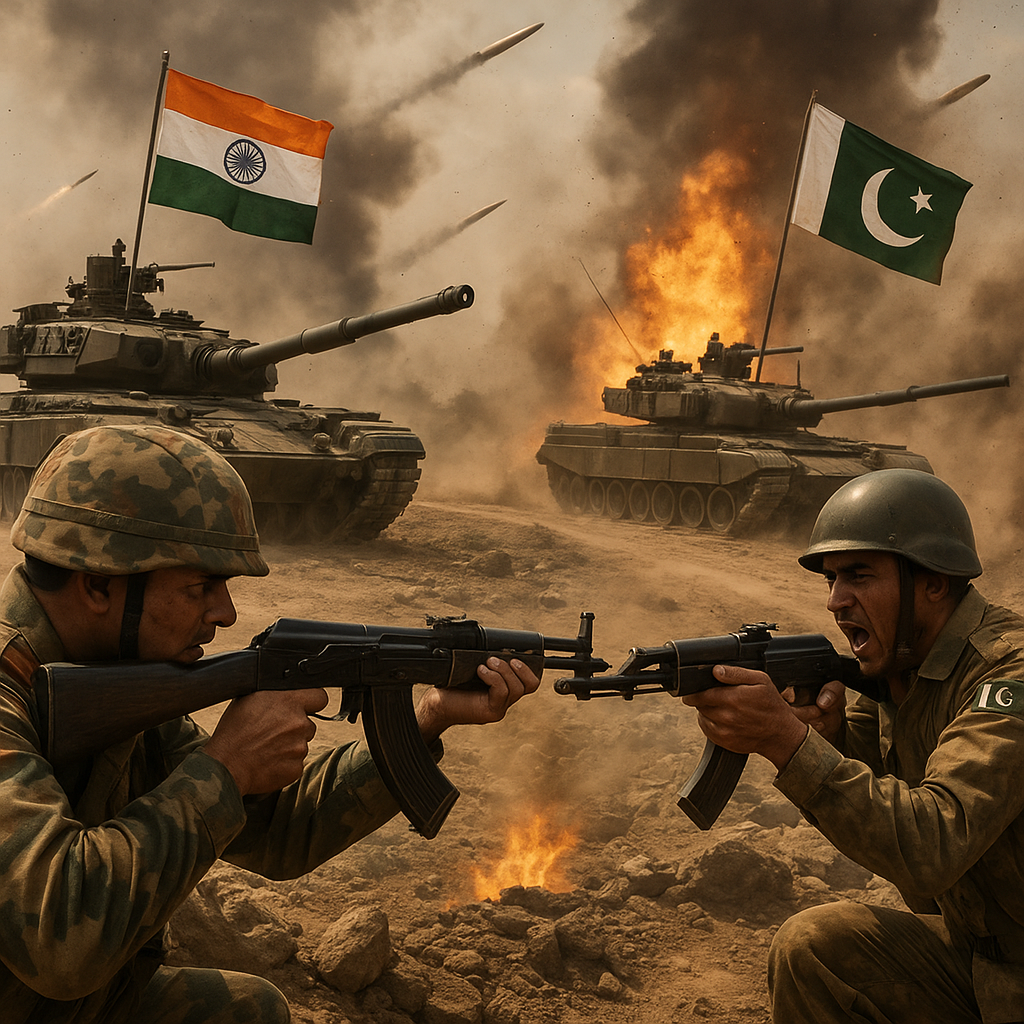In a significant development, India and Pakistan have agreed to a full and immediate ceasefire after four days of escalating military confrontations. The agreement, announced on May 10, 2025, aims to halt ongoing hostilities and de-escalate tensions between the two nuclear-armed neighbors.
Background: Escalation Triggered by Kashmir Attack
The recent conflict was ignited by a terrorist attack on April 22 in Indian-administered Kashmir, resulting in the deaths of 28 civilians, predominantly Hindu tourists. India attributed the attack to Pakistan-based militants, leading to retaliatory airstrikes, including “Operation Sindoor,” targeting militant infrastructure in Pakistan. Pakistan responded with its own military actions, and both sides reported significant casualties.
Diplomatic Efforts and Ceasefire Agreement
The ceasefire was the culmination of diplomatic engagements involving U.S. Secretary of State Marco Rubio and Vice President JD Vance, who interacted with senior officials from both countries. Despite the U.S. announcing its role in mediating the ceasefire, India emphasized that the agreement resulted from direct military-to-military communication, minimizing external mediation.
Reactions and Future Talks
While Pakistan acknowledged and appreciated the U.S. role in brokering the ceasefire, India maintained that the decision was a bilateral one. The Directors General of Military Operations (DGMOs) from both nations are scheduled to hold further discussions on May 12 to review the situation and plan the next steps.
International and Domestic Responses
The international community has welcomed the ceasefire, viewing it as a positive step toward de-escalation in a volatile region. However, within India, political parties like the Shiv Sena (UBT) and the Congress have expressed concerns over the U.S.’s involvement, emphasizing India’s sovereignty and the need for internal resolution of such conflicts.
As the situation stabilizes, both nations face the challenge of maintaining the ceasefire and addressing the underlying issues that have historically strained their relations.

